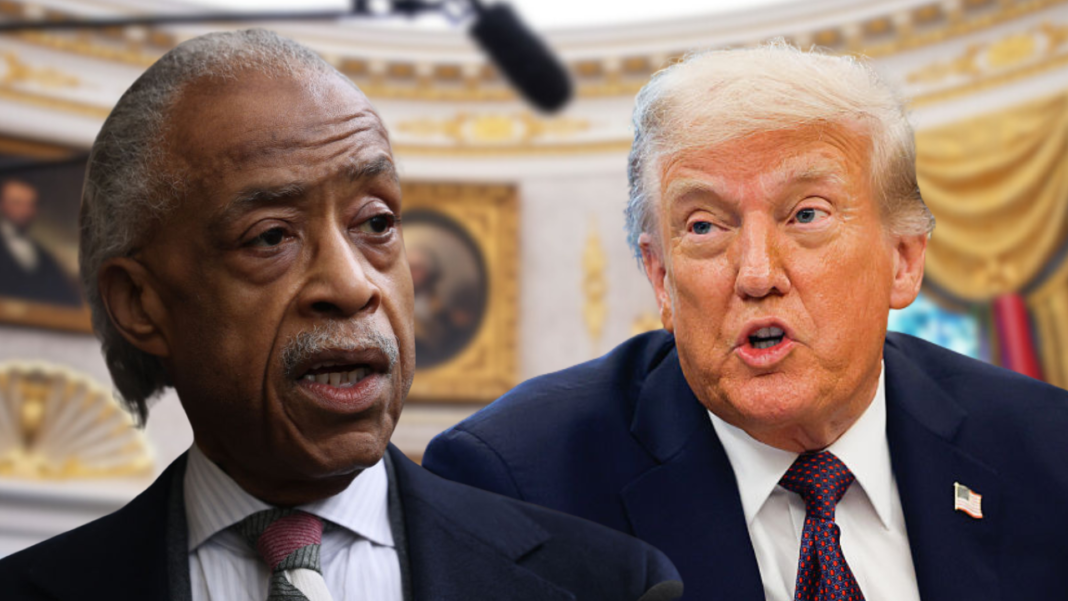Trump Targets Al Sharpton in Latest Free Speech Controversy
In a recent social media outburst, former President Donald Trump took aim at Rev. Al Sharpton, marking another chapter in his history of contentious interactions with figures from the media and civil rights community. Posting on Truth Social, Trump critiqued Sharpton’s political stance and called for the Federal Communications Commission (FCC) to investigate Sharpton’s weekend show, “PoliticsNation,” on MSNBC.
The Nature of Their Relationship
Trump and Sharpton share a complex history that spans decades, often characterized as “frenemies.” Having crossed paths in New York’s social and political circles, both have occasionally found themselves aligned, even while frequently clashing over issues of race and politics. In his post, Trump recalled past interactions, stating, “I knew Al Sharpton for many years… he was a major ‘TRUMP’ fan.” He even claimed that Sharpton relied on Trump’s presence to attract crowds to his events.
The Tawana Brawley Case Revisited
Trump’s post took a sharp turn when he referenced the infamous Tawana Brawley case from 1987, in which a young Black girl falsely accused four white men of kidnapping and rape. Sharpton’s insistence on believing Brawley’s claims at the time has haunted him for decades. Trump labeled this event as “one of the worst low-level scams in history,” highlighting a deep-seated animosity between the two men that stretches back to the incident.
Sharpton has maintained that he acted in good faith, believing what he was told by Brawley’s legal team. He has often stressed that his involvement was rooted in advocacy for justice, rather than a desire for personal gain. “I never asked a 15-year-old girl what happened… I believed the lawyers,” Sharpton stated in a past interview.
Sharpton’s Media Presence and Trump’s Complaints
In his social media tirade, Trump did not just stop at personal attacks. He also criticized Sharpton’s employer, NBC, implying a bias in their reporting. He described Sharpton’s show as “one of the lowest-rated shows in television history,” suggesting that lack of audience reflects a broader issue of perceived media bias against Republicans. Trump argued that the FCC should scrutinize NBC’s license, claiming that it disproportionately airs favorable content about Democrats while dissing Republicans.
Broader Implications for Free Speech
This incident is not merely personal; it reflects Trump’s ongoing attempts to influence the media landscape. Since returning to office, Trump has utilized the presidency as a platform to challenge media narratives he views as unfavorable, even pursuing lawsuits against networks like CBS for perceived mistreatment.
The FCC, under Trump’s appointee Brendan Carr, holds substantial regulatory power over broadcast networks. Recent moves by Carr to apply pressure on companies like Disney regarding late-night shows exemplify a troubling trend of political pressure impacting media operations.
The Response from the Civil Rights Community
Sharpton’s advocacy for marginalized communities has led him to publicly criticize Trump’s policies, particularly those that target diversity, equity, and inclusion initiatives. These efforts have positioned him as a prominent voice against what he characterizes as attempts by Trump to undermine Black leadership in urban areas.
In July, Trump accused Sharpton of receiving financial incentives for his endorsements in political campaigns, labeling donations to Sharpton’s nonprofit, the National Action Network, as suspicious endorsements. Sharpton refuted these claims, clarifying that funds were intended for nonprofit activities, not personal gain.
Concerns Among Former Leaders
Former President Barack Obama recently weighed in on the pressing issue of media freedom in the face of political interference. He warned against the dangers of government coercion undermining the First Amendment, stating that it is essential for media outlets to stand firm against such pressures.
“This is precisely the kind of government coercion that the First Amendment was designed to prevent,” Obama articulated in a recent statement reflecting the ongoing battle for free speech in America’s political landscape.
A Critical Moment for Media and Politics
As this saga unfolds, it underscores the intricate relationship between politics and journalism in contemporary America. The actions and rhetoric employed by Trump and the responses from individuals like Sharpton highlight an ongoing tension that is not merely about personal animosities, but a broader struggle over free speech, media representation, and the dynamics of power in American society.



